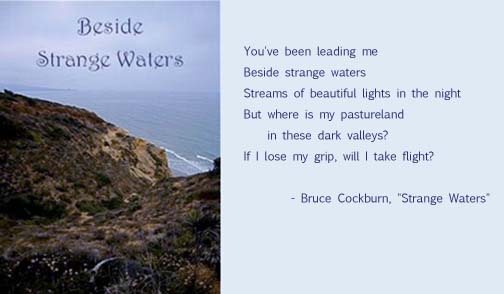Simone de Beauvoir’s The Blood of Others
I picked up this book from the "Take One, Leave One" bookshelf at Anthony’s Key Resort in Roatan. Curiously, there were few light-hearted romances, murder mysteries, or suspenseful thrillers. Most of the books left there were quite serious, as if dozens of guests had hoped to finish a great work of literature while lying on a hammock - or perhaps dozens of them completed their reading and donated the books so others could become enlightened as well.
At any rate, when I finished my Michael Crichton thriller, I rifled through stacks of intimidatingly serious novels, and eventually settled on two books dealing with love and death - one about the death of a parent, and the other about the death of a former lover. Not what I had planned to think about during vacation, but it worked.
Now, two months later, I have completed my own reading journey, and made it to the end of
The Blood of Others. I am more than ready to pass that book on to another reader!
I’m not sure what to say about Simone de Beauvoir’s novel, except that if it was turned into my writer’s group in manuscript form, we would NOT have called it “a brilliant, electrifying novel” as the New York Times did. We would have torn it to shreds for violating every principle of contemporary writing practice and typography, including:
- the confusing lack of white space between scenes
- abrupt transitions from one time period to another, with no indication that anything had changed
- inexplicable shifts in point of view from third- to first-person
- interminable interior monologues, etc.
Apparently, French writers feel no need to make concessions to their reading audience. If you want to make sense of this novel, or comprehend the work of a French literary theorist like Jacques Derrida or Michel Foucault, you must be prepared to work at it.
Did I struggle with de Beauvoir's text because I am an American reader who does not comprehend the French mindset? It is because my nation wase not defeated and occupied by the Germans in World War II, and so we have no idea what desperate choices other people must face?
Or are we uncomfortable with the free and endless play of words and signs proposed by postmodernists like Derrida? Unlike de Beauvoir in 1948, today we are writing in a world in which genre hopping, genre blending, and literary mash-ups are the norm. Even concepts of gender, which were once thought to be biologically determined and fixed, are now fluid.
A recurrent theme in de Beauvoir’s novel is the degree to which one should accept responsibility for the lives and choices of others. Should one should feel guilty about influencing others, if their choices turn out to be detrimental? Does my existence deprive others of basic necessities like food or even life? Should I eat roasted potatoes if it causes someone else to starve? Is Angus beef or cavier worse than a French fry?
What about a person's response to Fascism? Jean wondered if it was right to fight for his freedom if it caused his friends to die. When the Nazis shot innocents as reprisal for sabotage, Jean's sense of guilt increased proportionally.
As you may have guessed by now, there is a lot of existential crisis, self-doubt and even self-loathing in a novel which promised to be about love.
I guess I struggle with existential guilt too, as if I have to somehow justify my own existence every day. For a year or two, I read
Max Ehrmann's poem, “Desiderata” every morning as kind of an antidote to negative thinking. During the day, I would tell myself,
 |
| https://www.wallpapers.net/tree-stars |
You are a child of the universe no less than the trees and the stars; you have a right to be here.
Honestly, after reading
The Blood of Others and listening to Jean go on about his guilt for page after page after page, I wanted to smack him and tell him to get over it. Which, oddly enough, is my reaction to my own habitual and foundationless sense of culpability
This desire to smack myself reminds me of other lines from “Desiderata”:
Beyond a wholesome discipline, be gentle with yourself.
and
And whatever your labors and aspirations, in the noisy confusion of life, keep peace in your soul. With all its sham, drudgery and broken dreams, it is still a beautiful world. Be cheerful. Strive to be happy.
Yeah, well, in between existential crises, I do strive to be cheerful and happy. Despite everything we’ve done to it, this is still a beautiful world, and I have the incredible good fortune to be alive and to experience some of that beauty.
 If you were to enlarge this screen shot, you'd see that so far this year, I've spent an inordinate amount of time clearing my desk - which seems low-level but I've gotten really tired of not having room to work, so this really is a first-quarter priority for me.
If you were to enlarge this screen shot, you'd see that so far this year, I've spent an inordinate amount of time clearing my desk - which seems low-level but I've gotten really tired of not having room to work, so this really is a first-quarter priority for me.







